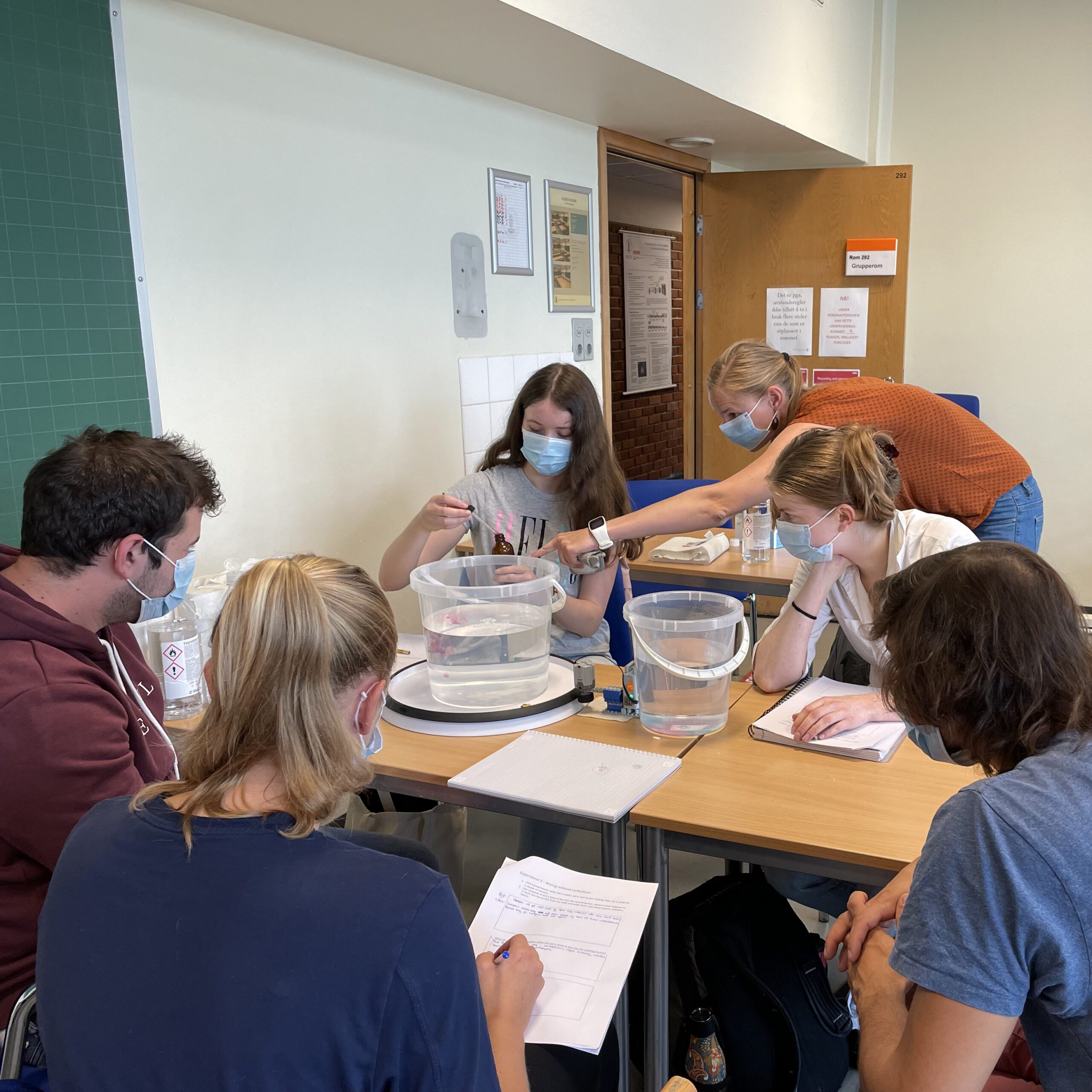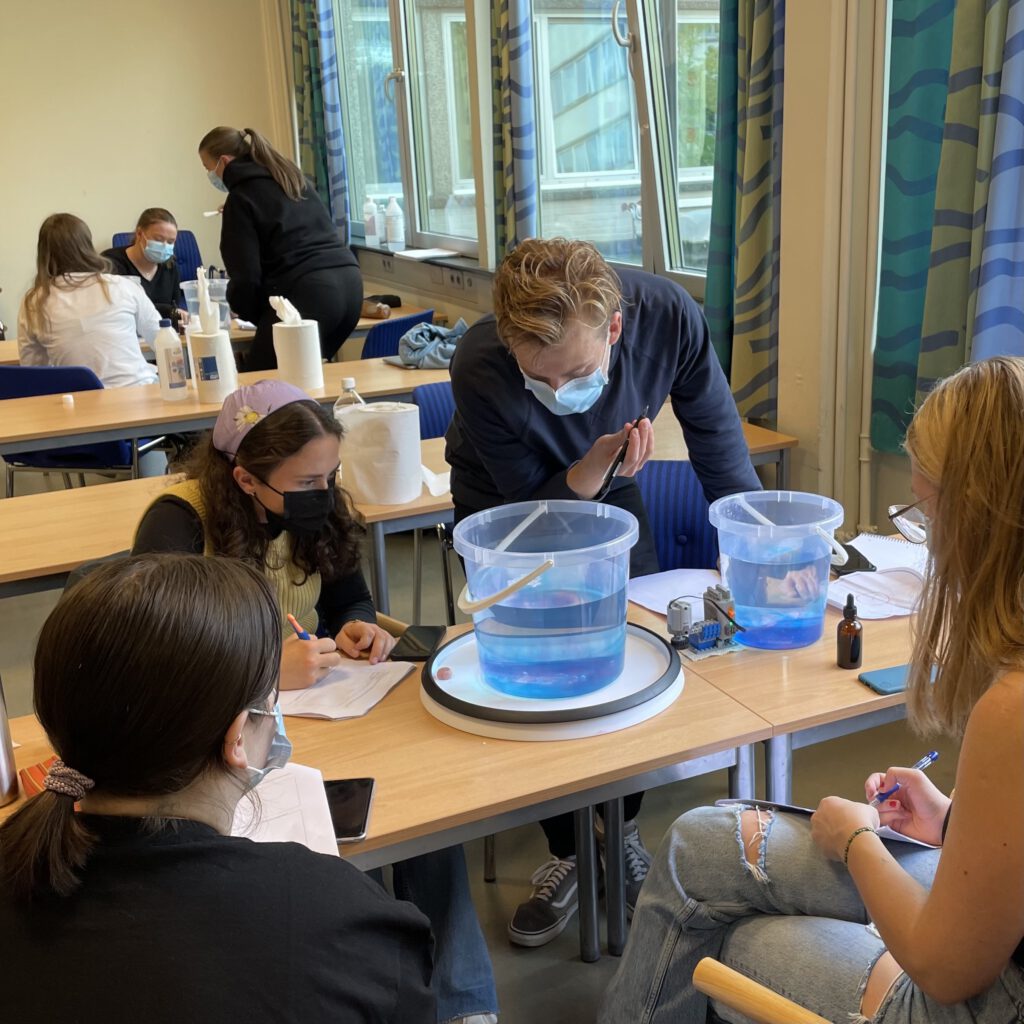
Finally published yesterday: “Student guides: supporting learning from laboratory experiments through across-course collaboration” by Daae et al. (2023)
A project near and dear to my heart is using the DIYnamics rotating tank experiments in across-course collaborations. “Older” students, who did experiments the previous year, are trained to then act as guides to “younger” students when they do experiments for the first time, thus lowering the threshold of engaging with equipment, acting as role models when it comes to experimentation, the way to talk about the experiments, and much more. The “younger” students appreciate the interaction, support, and guiding questions, the “older” students realize how much they learned in only a year and what an important role questions play in the learning process.
We started planning this project already before the pandemic, then ran the very first test with 3 paid “older” students in 2020, and then with both full courses, “older” and “younger” students, in 2021 (which is when I took the pictures in this blog post). Then in 2022, we made sure to evaluate the whole thing properly, and that is what, after we presented this project at several conferences already (for example this spring: poster here), is now finally published as
Daae, K., Årvik, A. D., Darelius, E., Glessmer, M. S. (2023). “Student guides: supporting learning from laboratory experiments through across-course collaboration”. Nordic Journal of STEM Education, Vol. 7 No. 1: full papers 2023, p 98-105, DOI: 10.5324/njsteme.v7i1.5093
You can download the pdf here (and you should, it’s a pretty cool project!).

Recently published: "Supporting sensemaking by introducing a connecting thread throughout a course" (Daae, Semper, Glessmer; 2024) - Adventures in Oceanography and Teaching says:
[…] Pierre (with a super easy introduction to rotation in labs that we taught) and Kjersti and Elin (using student guides to help students in their first exposure to the topic, but also to give the gui…). And I think on the lab front of things, we’ve made progress. But what about introductory […]
Recently published: "Supporting sensemaking by introducing a connecting thread throughout a course" (Daae, Semper, Glessmer; 2004) - Adventures in Oceanography and Teaching says:
[…] Pierre (with a super easy introduction to rotation in labs that we taught) and Kjersti and Elin (using student guides to help students in their first exposure to the topic, but also to give the gui…). And I think on the lab front of things, we’ve made progress. But what about introductory […]